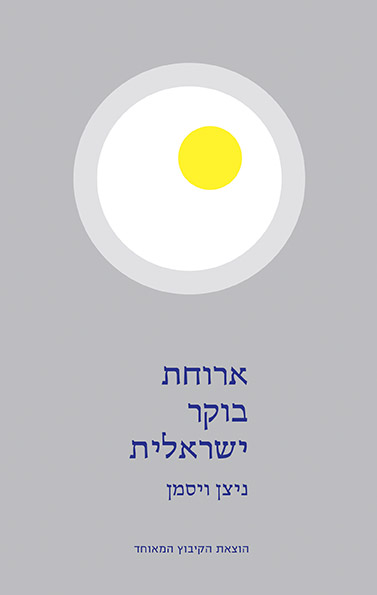
Israeli Breakfast
Idan, a new army recruit, can’t take his commander’s abuse any longer, and breaks down. He goes AWOL from his unit and seeks refuge in the home of his non-conformist grandfather, because he is sure that he will understand and protect him. In the second story, Miki, a successful physicist, is attracted to Zen Buddhism and decides to leave the city with his family in order to find peace in the countryside. But as he searches for his dream home, he discovers the phoniness of the ‘idyllic’ pastoral life and is exposed to a vacuous spirituality that disgusts him. In the title story, Ofer is a would-be high-tech entrepreneur whose start-up has collapsed, forcing him to sell his home. This seriously damages his relationship with his wife and he starts to doubt his masculinity. In another, a lawyer meets a bully who beat him up as a child, and is overwhelmed by the traumatic memory. In the final story, Motti takes his son on a trip to Amsterdam. This is Motti’s first trip abroad, but whether it will restore his male ego and enable his son to see him as a reliable father, is not clear.
All the stories in this impressive collection deal with the Israeli male ego. In matters of livelihood, professional ambition, self-fulfillment and the desperate need for recognition, Weisman’s heroes find themselves at a crossroads. They must face up to issues of responsibility, love and loyalty, as well as the gap between their dreams and reality. With a critical eye on social norms and deep love for human beings, Weisman serves up slices of Israeli life full of humor and compassion.

-
“Israeli Breakfast is an outstanding collection that demonstrates full mastery of the art of the short story; an education in good writing … Weisman’s stories activate an emotional intensity that it is difficult to explain analytically… If you want to write, read Israeli Breakfast, and if you only want to read, give yourselves as little present each time: one story from the collection at bedtime.”
-
“This is Hebrew prose that is arousing but measured, multi-layered but economical. Prose that relies upon the intelligence of its readers. The reading enjoyment also springs from the sense that behind the specific themes and forms there is a guiding hand. ”
-
“Nizan Weisman restores not only the rather lost honor of the short story but also the basic human and ethical dimension that has largely gone missing from Israeli culture, including literature. A warmly recommended book for those who would like to remember that there is such a thing as a desire for justice, and that there is still such things as human solidarity and family and mainly that in addition to the “I” there is also “the other" ”
-
“A wonderful writer … His writing is human, pure, captivating. A moving book … That very rare thing that a book can do to us happened to me … I found myself opening up to the story and swallowing it as if were a healing drug … Nizan has managed to bring to life not only a very particular period and characters who are unforgettable for me, but also that elusive thing which it is difficult to put one’s finger on, and to say, “That’s it!””
